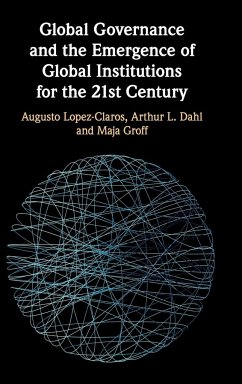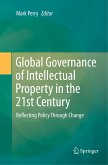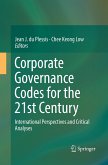Hinweis: Dieser Artikel kann nur an eine deutsche Lieferadresse ausgeliefert werden.
Augusto Lopez-Claros is Senior Fellow in the School of Foreign Service at Georgetown University, Washington DC, former Director of the Global Indicators Group at the World Bank, and Chief Economist and Director of the Global Competitiveness Program at the World Economic Forum. He is the author of Equality for Women = Prosperity for All (2018).
Part I. Background: 1. The challenges of the twenty-first century
2. A history of global governance
3. European integration: building supranational institutions
Part II. Reforming the Central Institutions of the United Nations: 4. The general assembly: reforms to strengthen its effectiveness
5. A world parliamentary assembly: a catalyst for change
6. Advisory mechanisms to support global policy-making
7. UN Executive Council: beyond an outdated paradigm
8. Completing the collective security mechanism of the Charter: establishing an international peace force
9. Towards systemic disarmament: resetting global priorities
10. Strengthening the international rule of law
11. Human rights for the twenty-first century
12. A new UN funding mechanism
Part III. Governance and the Management of Multiple Global Risks: 13. UN specialized agencies and governance for global risks
14. Economic governance for inequality and the private sector
15. Global financial architecture and the international monetary fund
16. Responding to global environmental crises
17. Population and migration
Part IV. Cross-cutting Issues: 18. Corruption as a destroyer of prosperity and the need for international enforcement
19. Education for transformation
Part V. Foundations for a New Global Governance System: 20. Values and principles for an enhanced international system: operationalizing global 'good governance'
21. Some immediate steps forward: getting 'from here to there'
Part VI. Conclusions: 22. Bridging the governance gap.








